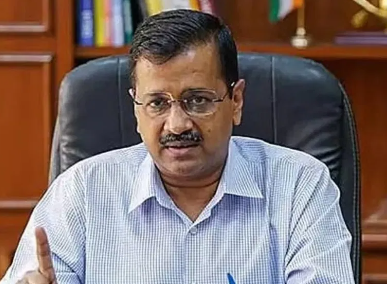Experts in cryptocurrency believe that the US’s bitcoin ETF is paving the way for such products in conventional financial markets across the globe, including India.
On January 10, the US SEC approved 11 spot bitcoin exchange-traded funds (ETFs). The approved funds were from BlackRock, Vanguard, Franklin Templeton, Valkyre, Fidelity, and Invesco.
Industry analysts claim that the Securities Exchange Commission’s (SEC) approval of the US spot bitcoin exchange-traded funds (ETFs) has given Indians a new avenue to invest in cryptocurrency assets, with tax benefits to boot.
On January 10, the US capital markets regulator approved eleven spot bitcoin exchange-traded funds (ETFs). The approved ETFs included those from BlackRock, Vanguard, Franklin Templeton, Valkyre, Fidelity, and Invesco.
Experts in the field predict that as time goes on, these ETFs will stabilize the price of bitcoin and lower the risk associated with liquidity. “Investments from institutions will now come in. Crypto research firm CREBACO’s founder and CEO, Sidharth Sogani, stated, “We anticipate around $5 billion coming in the next 45 days itself.”
Here, are several reasons why Indian lawmakers and cryptocurrency investors should support the approval of the spot bitcoin ETF.
Can ETFs for spot bitcoin be purchased by Indians?
Just like they can invest in US stocks, Indian investors can buy US ETFs directly through domestic or international brokers. In fact, a lot of modern stock brokers provide simple access to US stocks and ETFs.
Note that foreign stock and ETF investments are subject to the Reserve Bank of India’s Liberalized Remittance Scheme (LRS), which permits Indian investors to make up to $250,000 in investments and also covers US ETFs.
However, according to LRS norms, remittance for trading in any foreign market, including the US stock market, is prohibited.
According to Viram Shah, Co-Founder and CEO of Vested Finance, a US-based investment platform, “Spot bitcoin ETF gives an easy and regulated alternative to add crypto exposure to long-term crypto investors’ portfolios, but not for traders, as trading is not allowed in US stocks and ETFs.“
How do ETFs for spot bitcoin operate?
Spot bitcoin ETFs will trade on traditional US markets, tracking the value of bitcoin, much like ETFs in India track indices like the Sensex or Nifty or commodities like silver or gold.
To profit from the increase in value of the digital asset, current investors won’t need to open separate accounts on cryptocurrency exchanges or make direct investments in bitcoin.
Investing in Bitcoin ETFs allows Indian investors to have exposure to the market through regulated institutions, eliminating concerns regarding cryptocurrency storage.
Spot bitcoin ETF holdings will consist of bitcoin that has been purchased from cryptocurrency exchanges and kept safe by custodians. A few ETFs might also follow specific indices based on bitcoin.
What are bitcoin ETFs' tax benefits?
Different Indian tax laws apply to capital gains in relation to equity funds, debt funds (including foreign mutual funds), cryptocurrency assets, and foreign investments made through Long-Term Savings Accounts (LRS).
Capital gains from cryptocurrency assets are subject to a flat 30% tax in India. Additionally, there is no carryover of losses to future periods and losses from one cryptocurrency cannot be offset by profits from another.This contrasts with the tax laws governing stocks and equity funds, which have substantially lower tax rates and permit loss setbacks.
Additionally, every transfer of digital assets on domestic cryptocurrency exchanges is subject to a one percent tax deducted at source (TDS).
Section 115BBH of the Finance Act 2022 brought certain tax regulations into effect.
“The 1 percent TDS on crypto transactions will not be applicable for bitcoin ETFs in the US since there is no actual crypto being purchased and capital gains tax will also be lower,” added Shah.
Under the LRS approach, the long-term capital gains rate will be 20 percent with indexation benefits, and the tax rate on capital gains arising out of spot bitcoin ETFs will depend on your tax bracket for the short term (less than 36 months). This would be in opposition to India’s flat 30% tax rate on Bitcoin and other cryptocurrency ventures.
Notably, India no longer offers the benefit of Long-Term Capital Gains (LTCG) with indexation for more than three years; instead, foreign mutual funds are taxed at the marginal tax rate for all tenures.
What expenses come with purchasing spot bitcoin exchange-traded funds (ETFs)?
In 2023, the government imposed a 20 percent Tax Collected at Source (TCS) on deposits made through the LRS exceeding Rs 7 lakh. This tax also applied to investments made in spot bitcoin exchange-traded funds (ETFs).
Unlike 1 percent TDS on Indian cryptocurrency investments, 20 percent TCS may cause liquidity to become blocked, however the TCS can be used to offset other tax obligations.
However, in addition to TCS, direct investment in foreign markets has other costs such foreign exchange rates, brokerage fees, and bank fees.
To invest in a spot bitcoin ETF, there would also be management fees, sometimes known as the expense ratio. For instance, ARK has declared a 0.25 percent fee, whereas BlackRock intends to charge 0.3 percent.
“Another point of friction could be that remittance under LRS, which Indian investors are still getting used to, is not a straightforward process like UPI where credit and debit are very easy,”according to Shah.
What effect might this have on Indian policy?
The government has been working on drafting legislation pertaining to digital assets for many years, but the crypto ecosystem in India is still waiting.
The Cryptocurrency and Regulation of Official Digital Currency Bill was listed by the government in November 2021, however it was never discussed. Nonetheless, the Center implemented virtual digital asset (VDA) taxation regulations in 2022.
According to Nischal Shetty, co-founder of Shardeum, the US’s embrace of the bitcoin ETF opens the door for comparable ETFs to be introduced in conventional financial markets globally, including India.
The founder of Reflexible Pte Ltd, Ajeet Khurana, claims that the US has established a precedent by enacting legislation that is instrument-specific. “We could have an instrument which is similar to the spot bitcoin ETF if in the future we find that the Indian government is okay with Indians taking a financial exposure to bitcoin but not exploring the other qualities of bitcoin,” he stated.
However, analysts also think that there are significant differences between the US and Indian financial markets, which could make it more difficult to approve products like spot bitcoin exchange-traded funds (ETFs).
In the upcoming days, all Indian regulators as well as regulators worldwide will be keenly monitoring the behavior within the ETFs. The structural distinctions between the US and Indian ETF markets will be significant because the Indian industry is still primarily driven by retail, and consumer protection concerns are more prevalent in the ETF certification process. The RBI has brought up these concerns time and time again, which affects how our regulators will see the asset class.”
Would a spot bitcoin ETF be appealing to Indians?
All cryptocurrency experts agree that the launch of a spot bitcoin ETF is a big step forward, connecting the cutting edge of digital assets with the established financial markets.
Shivam Thakral, the CEO of BuyUcoin, a “A regulated bitcoin financial product approved by a major global financial regulatory like the SEC will add a lot of credibility to digital assets which will create trust among institutional investors and encourage more traditional financial institutions to enter the space.”



